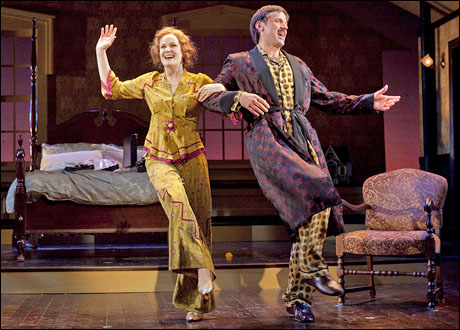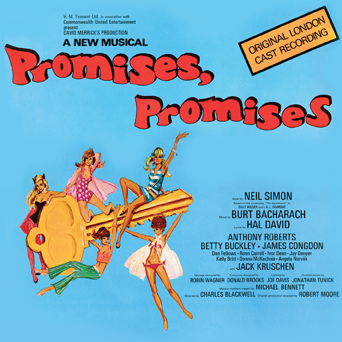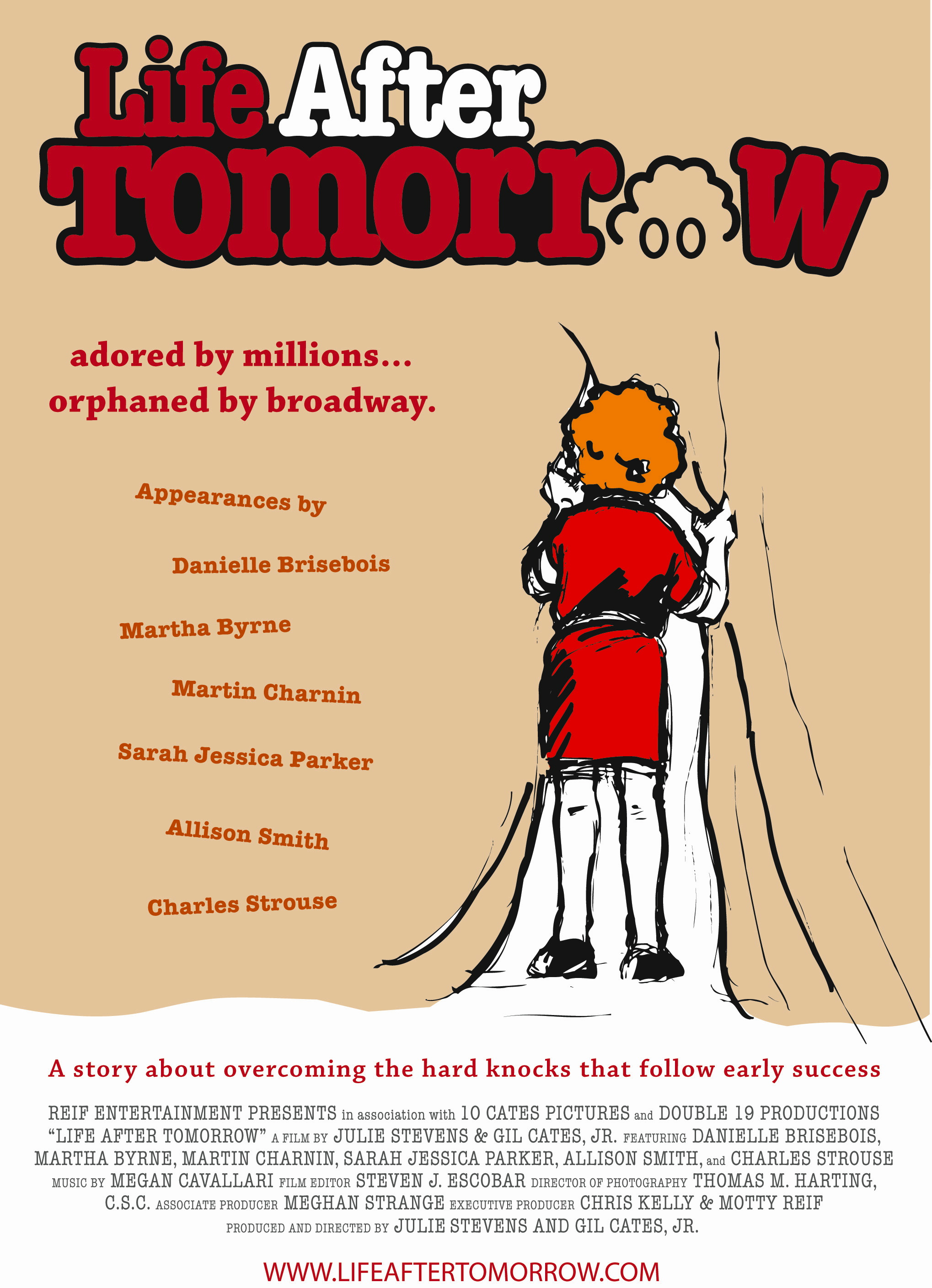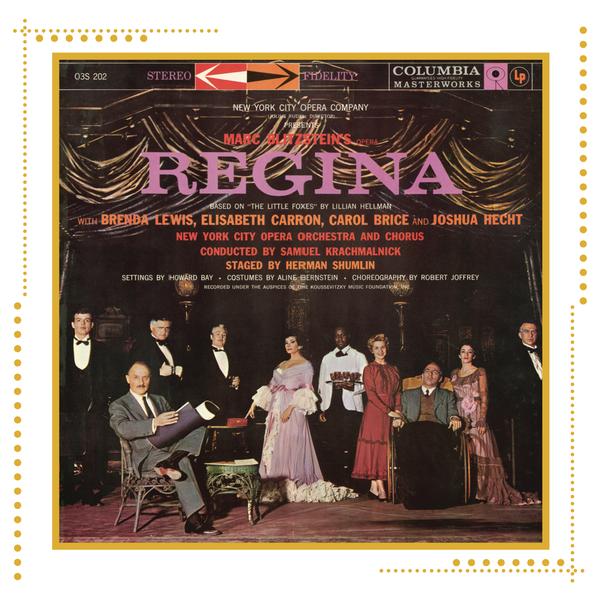My buddy Steve is asking folks about the original casts they would have liked seeing on his site. (Be sure to drop over to vote in his poll!) This was originally going to be a post on his comments, but after a while I realized it would be obscene to post this, so I moved it here:
It seems every so often there is a show or a production that entices me to wonder what it was like to be in the house. When I talk to older theatregoers I always ask them about their first show and their favorite show (depending on the time we have). I’ve never been anything but fascinated by the responses I get. And I find I’m always saying, “Gosh, I would have loved seeing that!” So I made what I call my “Time Machine” list. Whenever there’s a new one I just add it to this mental list. It’s ever growing, because the more I read and the more I learn the more fascinated I become. There are countless shows that come to mind as something I would have liked seeing – and almost all of them are original casts.
Even now, I tend to have a preference for original stars. There have been a couple of times where I’ve let some shows pass me by because I wasn’t really interested in the new cast members. If original cast members return for the close, it usually sparks up on my radar again. Case in point: David Cromer in Our Town (which I saw last night, more on that later) and Harvey Fierstein and Marissa Jaret Winokur in Hairspray (I went the day before the show closed). So if there’s a chance to see the originals, yeah I’m there. Are there productions where I would have preferred seeing the originals? Yes: Proof and The Producers. But here’s a short list of some of those shows that were on the boards before I was born that I would love to have seen:
Follies – Of the original Sondheim-Prince collaborations this is the one I’d want to see most, in fact I’d love it if City Opera were able to bring this production back to life in its repertory (they already have Prince’s Sweeney Todd, which along with Pacific Overtures has been preserved for posterity. I’ve watched those brief video highlights from the dress rehearsal which only makes me want to see it more. It is the sort of production that would be unthinkable today and fiscally impossible. It seems that Prince never expected to make money off of this show – and he didn’t. The show closed after 522 performances, losing its entire investment. But oh those costumes, the scenery and the staging. Michael Bennett’s “Who’s That Woman?” is considered by many to be the greatest production number. Ever. That original cast is well-remembered and likely never to be forgotten.
Gypsy – Merman. Lansbury. Daly. It’s one of the of best musicals of all time. Ethel Merman with Jerome Robbins’ original staging (and a smash like none other)? I’d probably be agreeing with Walter Kerr’s assessment that it’s “The best damned musical I’ve seen in years.” The part was tailor made to her talents. Criticisms from the creators be damned, it’s Ethel Merman in her last original role on Broadway belting it like no other and being challenged like she had never been before. I wouldn’t have missed it for anything. I like to think Lansbury was the best from the evidence I’ve seen – balls-to-the-wall, riveting and simultaneously gutteral and alluring. Daly is a superb actress and her cast album doesn’t give her performance its due. I’ve seen a bit on youtube, but I would love to have been in the St. James when she bent over and attacked the stage during “Rose’s Turn.”
Mame – Angela Lansbury is required viewing. SarahB and I would take the time machine all the way to Hotel Paradiso in 1957 to Prettybelle in Boston in 1971. But this is the one out of all of them I want to have been there for. Lansbury ir in her Tony winning, take the town by storm tour de force performance? That score, that staging and choreography – and all of New York falling at Lansbury’s gold lame pajama pants. It was a once in a lifetime opportunity for Lansbury, and forever changed her career and her life (and is the first of her five Tony wins). The cast album remains a desert island selection, but boy I would have loved seeing her with my other favorite Bea Arthur.
My Fair Lady – Lerner and Loewe besting Rodgers and Hammerstein at their own formula? (Well, I suppose it’s debatable, but don’t tell my musical professors that). The musical adaptation of Pygmalion is one of my personal favorites – I played Freddy Eynsford-Hill in my high school production and am quite proud of what I did when I was 17 (and would love the chance to do it again). It’s a shimmering score – Lerner and Loewe’s true triumph. The book is Lerner’s best; none of the shows he wrote before or after ever had a book this strong (of course, he had Shaw to thank there). From the first strains of that overture to the finale, it’s an utter masterpiece. Add to the formula Julie Andrews, Rex Harrison, Robert Coote & Stanley Holloway and I’m done.
She Loves Me – When asked my favorite musicals, I usually give three answers: The Light in the Piazza, Sweeney Todd and this charmer. I saw Piazza on its opening night and have seen various tapes of Sweeney over the years (and was there for its 2005 revival). But I have never had the chance to see this one. It’s original cast album is a sparkling jewel from start to finish. It’s my favorite Bock & Harnick show, with some of their best character numbers which perfectly complement Joe Masteroff’s lovely libretto. Start to finish, nothing but pure love. I listen to this cast album ever New Year and the finale gets me ever time. Barbara Cook’s “Ice Cream” will never be topped.
1600 Pennsylvania Avenue – One of these is not like the other. It’s of course obvious that I would place this one on my list. The show is a notorious flop with an absolute mess of a book but a stunner of a score. Patricia Routledge, a Tony winner for Darling of the Day (we’ll have already stopped there on the way), gets a mid-show standing ovation for “Duet for One.” I mean, how fascinating is that? She stirs up a bored crowd into a manic frenzy over nine minutes of stage time. Then Routledge leaves the stage until the finale and the audience, though titillated, is already sad to see her go.
South Pacific – If I had to choose one of the Rodgers and Hammerstein shows, this would be the one. Yes, it’s my personal favorite of all of them and the revival is fresh in my memory. But can you imagine being there when it was a critical and cultural phenomenon? Four years since WWII ended, folks are still quite well aware of the battles of Guadalcanal, Iwo Jima, etc and there is still a lot of mourning and remembering. This show opens at the Majestic with that cast – still the only production in the history of the Tony Awards to sweep all four acting categories. Sure, I’ve seen Juanita Hall in the film and Mary Martin in the archival tape of the London production, but it doesn’t beat actually being there.
Who’s Afraid of Virginia Woolf? – I loved the 2005 revival, which I saw twice and of course have seen the Oscar-winning film adaptation. But it wasn’t until I got my hands on the original cast album (you read that right) that I realized what a stunning production the original was. Uta Hagen leads the charge as the definitive Martha; vulgar, hilarious and devastating. The show was revived in 1976 with Colleen Dewhurst, and since I’m a huge fan of hers, I would have like seeing her spin.
Some runners-up: Show Boat (1927), Coco, A Streetcar Named Desire (I’d take in the original with Tandy, national tour with Hagen, the 1973 revival with both Rosemary Harris and Lois Nettleton), Auntie Mame, Inherit the Wind, Long Day’s Journey Into Night, The Glass Menagerie, The Apple Tree, On a Clear Day You Can See Forever, High Spirits, The Man Who Came to Dinner, Ballroom, Nine, The Best Little Whorehouse in Texas, Call Me Madam, Candide, A Tree Grows in Brooklyn, Kismet, Allegro, Love Life, The West Side Waltz, Carnival, Illya Darling, A Chorus Line, The Music Man, Carnival in Flanders, 1776, A Little Night Music, Grand Hotel, Kiss of the Spider Woman, Mary Mary, West Side Story, Bells Are Ringing, Fiddler on the Roof, and…







